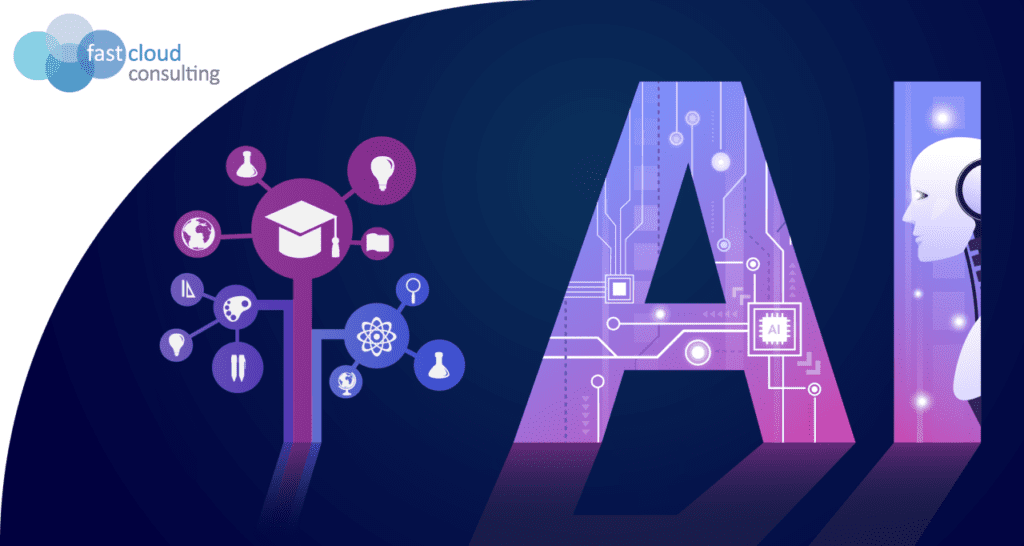The Future of Education: How Artificial Intelligence is Transforming Learning

Education is a crucial aspect of society. It has been the means through which future generations acquire knowledge and skills to succeed in an ever-changing world. However, the world is changing at an alarming pace, and education must adapt accordingly. Artificial intelligence (AI) has emerged as one of the most potent tools in shaping the future of education.
AI refers to the capability of machines to replicate human intelligence and learn from experience. In the realm of education, this implies that machines can offer personalized and more efficient assistance to students in their learning process. In this context, let’s delve into how AI is revolutionizing education and its significance in shaping the classroom of tomorrow.
Personalized learning: adapting education to individual needs
One of the main advantages of AI in education is its ability to offer personalized learning. Every student is unique, with different learning paces and comprehension styles. AI can collect data on a student’s progress and adapt content accordingly. This means that students can progress at their own pace and receive necessary assistance when needed. Imagine a classroom where each student has their own virtual tutor available 24/7.
Automation of Administrative Tasks
Teachers dedicate a significant amount of time to administrative tasks, such as grading exams and managing the classroom. AI can take over many of these tasks, freeing up time for teachers to focus on teaching and interacting with students. Additionally, AI can identify patterns in student performance and alert teachers to potential issues before they become insurmountable.
Personalized Educational Content
AI not only personalizes the way content is presented but also the content itself. It can generate learning materials based on each student’s specific needs. For example, if a student is interested in biology and ancient history, AI can create learning modules that seamlessly integrate both subjects. This fosters curiosity and exploration in students.
Virtual Tutoring and Online Interaction
Tutoring is a fundamental part of learning. How can AI virtual tutors answer questions, provide examples, and offer immediate feedback to students? Additionally, how does AI facilitate online interaction among students from around the world?
Data Analysis and Educational Predictions
AI can analyze vast amounts of educational data to identify trends and patterns. This is especially useful for school administrators and decision-makers in education. AI can predict student performance and help design strategies to improve outcomes. It can also identify areas where additional support is needed.
Access to Education Anytime, Anywhere
AI-based education is not limited by geographical or temporal constraints. Students can access content online anytime and anywhere. This is particularly important for those who have difficulty attending in-person classes due to geographical barriers or work commitments. AI-based online education offers flexibility and accessibility.
Development of 21st Century Skills
Education is not only about acquiring knowledge but also about developing skills. How can AI help students develop 21st-century skills such as critical thinking, problem-solving, and effective communication? Through simulations and interactive scenarios, students can apply their knowledge in real-world situations.
Identification and Support for Diverse Learning
Every student is different, and some may have special needs. AI can identify students who need additional support and provide specific resources for their needs. This includes early identification of learning difficulties and adapting teaching strategies to effectively address them.
Challenges and Ethics of AI in Education
Despite all the potential benefits, the implementation of AI in education also raises challenges and ethical issues. How are issues such as student data privacy, equity in access to technology, and transparency in algorithms addressed?
Conclusion about the Future of Education with AI
Artificial intelligence is changing how we learn and teach. With the ability to personalize learning, automate administrative tasks, provide innovative educational content, and much more, AI is creating an exciting future for education. However, it is essential to address ethical challenges and ensure that education remains a beacon of opportunity and growth in an ever-changing world.
Education is evolving, and artificial intelligence is paving the way for more personalized, efficient, and inclusive learning. The future of education is here, driven by AI innovation. As a society, we must embrace this evolution and work together to ensure that education continues to be a beacon of opportunity and growth in an ever-changing world.
Taking all of the above into account, the advantages that AI offers are irrefutable, and in education it is no exception. However, government entities specifically in the USA have spoken out about the parameters that educational entities must comply with it, if they want to make use of AI.
These regulations focus on privacy, equity and transparency, in order to protect the rights of students and also guarantee access to these innovations.
- 1. Data Privacy: Data privacy is crucial. These provisions ensure that students’ personal information is treated in a secure manner and is protected from unauthorized access.
- 2. Fairness and bias: Regulations aim to minimize bias in AI algorithms used in education. It is important to ensure that AI does not discriminate against any student and that everyone has the same opportunities.
- 3. Transparency: Transparency in the use of AI in education is crucial. Students, parents, and educators need to understand how artificial intelligence is used and how it positively affects the learning process.
- 4. Training and ethics: The regulations also highlight the need for AI ethics training for educators and staff. This includes understanding its limitations and appropriate applications.
- 5. Continuous evaluation: The regulations require continuous evaluation of AI tools used in education to guarantee their effectiveness and ethics.
All these regulations by United States government entities are in order to provide better quality education to their students and guarantee their rights.


0 comments